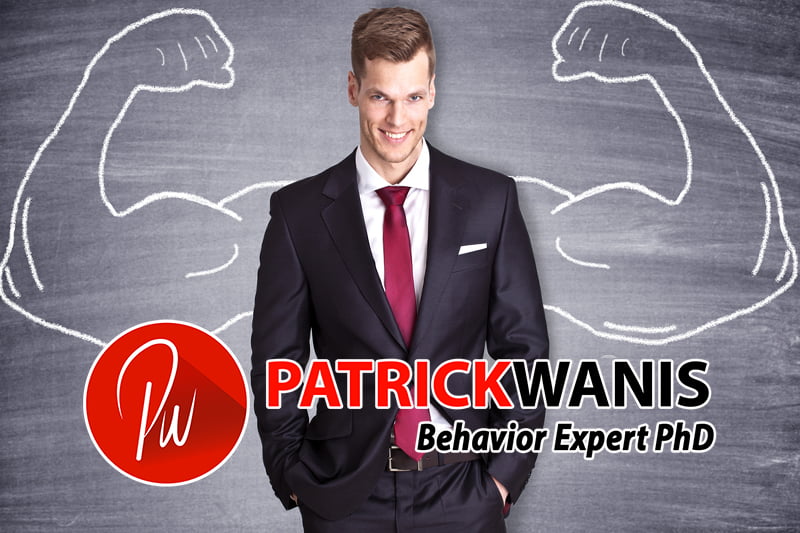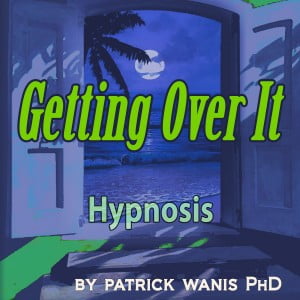
In this week’s Success Newsletter, I would like to reveal the difference between physical confidence and emotional confidence.
First a quick update:
“Anger ages you, shortens your life and can kill you”
Did you know that anger is linked to Coronary Artery Disease, heart attacks and depression? Listen to the interview and conversation between myself and Dr. Mike Bauerschmidt who also reveals how anger leads to Adrenal exhaustion. We also share what to do and what not to do when you are feeling a surge of anger. For example, Dr. Mike reveals why you should not exercise when you are angry: listen to it here.
Now, let’s talk about the difference between physical confidence and emotional confidence.
A client sent me a text letting me know that Felix Baumgartner (an Austrian skydiver and BASE jumper) is going to do a freefall from the stratosphere – 120,000 feet (36.5 km/23 miles.)
“Talk about self-confidence!” my client texted to me.
Felix Baumgartner, recognized for performing dangerous stunts, is making a second attempt at the highest ever skydive. Others who have tried to break the records for the highest, fastest and longest freefalls have lost their lives in the process.
We become inspired when we watch people perform extraordinary physical feats and we often believe that if a person is physically confident, they must also be confident in other areas of their life; they must be emotionally confident.
That is false: there is a vast difference between physical self-confidence and emotional self-confidence.
Physical Self-Confidence is one’s ability to perform physical feats that involve some sort of risk and require one to push his/her body beyond the average or to engage in a physical challenge that generates extraordinary fear for the average person.
“I love a challenge, and trying to become the first person to break the speed of sound in freefall is a challenge like no other.”  – Felix Baumgartner
– Felix Baumgartner
Emotional Self-Confidence is one’s ability able to engage in relationship behaviors that involve some sort of risk and which also potentially generate fear for the average person.
Why is there a distinction between physical and emotional confidence?
Generally, it is true that “the way you do anything is the way you do everything” but emotional fear can be more crippling than physical fear. When a person has a physical fear, he/she can push through it using sheer willpower; the conscious mind can push the person to engage in the action in spite of the fear of pain.
However, the fear to commit or the fear to become emotionally intimate cannot be overridden using sheer willpower.
Working with athletes, I have seen a 260-pound football player who can charge through an opponent on the football field and take slams from players even larger than him. However, that same person shrinks when it comes to personal relationships; he can exude confidence around women and people in general, but when in a romantic relationship, he is afraid of opening up and becoming emotionally intimate because he fears rejection and ridicule. The fear of rejection is much more powerful for him than the fear of physical injury.
Another client came to me because she recognized that something was truly amiss in her life since she gave up singing because she couldn’t handle the rejection and criticism and instead, she had taken up stripping.
And another client could bungee jump from 120 feet, but she couldn’t commit to a relationship or become emotionally intimate; she would quickly sabotage the relationship as soon as she felt her walls of defense coming down.
In four-day retreats, I have witnessed participants perform extraordinary physical feats (walking on hot coals, climbing steep mountains carrying heavy weights, walking tight ropes over ravines, etc) and yet those same participants have come to me for one-on-one help stating that they still freeze-up and cannot speak up for themselves with their family members or still fear rejection, criticism, ridicule or humiliation.
The point clearly is that being confident in one area of your life does not always translate to feeling or being confident in every other area of your life.
I define self-confidence simply as the belief in your own abilities, based on your skills, knowledge & past experience, and, the belief that no matter what happens, “You will be ok!”
Negative imagination & caution
One of the keys to being physically and emotionally confident is one’s imagination. When a person becomes paralyzed (can’t make the jump or can’t go up to the stranger to say “Hello” and ask for a date) his/her imagination is in a negative state and he is creating negative pain-based images of past failures, rejection, criticism and so forth. Ultimately he is imagining in his mind (knowingly or unknowingly) a potential failure coupled with pain. The successful athlete is always replaying emotional films in his/her mind of a successful accomplishment. The guy who is afraid to approach the girl is always replaying emotional films in his/her mind of a failure – rejection and humiliation.
The more one imagines positive outcomes, the stronger the association becomes with success and accordingly generates greater confidence i.e. the more you see yourself having success asking the girl out or making the phone call for business, the more confident you will feel and eventually you will reprogram your association with the action of asking a girl out or making a business call. However, if every time that you have a failure or setback with either one, you begin to anchor negative emotions, the harder it will be for you to associate positive emotions with the event.
This is where “I’ll be okay no matter what happens” is a critical belief and attitude. Learning not to react (not to take personally) someone else’s response to you builds your confidence.
But positive imagining and positive association are not sufficient to create a state of physical and emotional confidence.
As I am writing this, Felix Baumgartner announced that due to high winds, he is postponing his second attempt to make the highest ever skydive. In other words, caution, research and pre-planning are also an integral part of confidence. (He is a former military parachutist and has made more than 2,500 jumps, including dives from the Petronas Towers and the Taipei 101 skyscraper. )
“Fear has become a friend of mine. It’s what prevents me from stepping too far over the line. On a mission like this, you need to be mentally fit and have total control over what you do, and I’m preparing very thoroughly.” – Felix Baumgartner
Magician and stuntman David Blaine, successfully completed his 20-foot-high (6-meter) perch on a New York pier where he spent 72 hours standing inside an artificial lightning storm generated by seven high-voltage, low-current Tesla coils. But physicists also revealed that the Tesla coils, actually posed little threat to Blaine because the low electrical current they generated would not pass through his body. Blaine also had to stay awake for 72 hours without eating. Again, this stunt is an example of caution, extraordinary research and pre-planning.
As stated above, confidence is the belief in one’s abilities based on skills, past successes and the belief that “I will be okay no matter what happens.”
The one final ingredient, which can instantly boost your confidence, is the understanding of the true power of confidence – its impact on others.
Have you ever said or heard this said:
“Stop pacing around like that…You are making me nervous…You are starting to make me scared.”
The opposite is also true:
“I feel great around you.”
Your self-confidence makes other people feel good about themselves and makes them feel safer and more secure. This is why women find confident men so appealing: it is a qaulity that powerful people exude. And power is the greatest aphrodisiac to women. So, if you want to have instant confidence, then recall and understand that when you exert and express confidence you make other people feel better and you become a magnet to others.
Use my audio program to rebuild and reprogram yourself for supreme self-confidence.
Also learn more about how to speak up for yourself, find your voice and conquer self-doubt with these articles:
https://patrickwanis.com/blog/immunity-to-criticism/
https://patrickwanis.com/blog/what-women-look-for-in-a-man/
https://patrickwanis.com/blog/finding-your-voice-and-speaking-up/
https://patrickwanis.com/blog/conquering-self-doubt/
If you want more assistance to regain your confidence and get over a breakup, betrayal or rejection, use my comprehensive program “Getting Over It.
You can post your comment on this newsletter below.
If this newsletter was forwarded to you and would like to receive all of my newsletters please enter your email address on the home page.
I wish you the best and remind you “Believe in yourself -You deserve the best!”
Patrick Wanis Ph.D.
Celebrity Life Coach, Human Behavior & Relationship Expert & SRTT Therapist
www.patrickwanis.com
Anointed “The Woman Expert” by WGN Chicago, Patrick Wanis PhD is a renowned Celebrity Life Coach, Human Behavior & Relationship Expert who developed SRTT therapy (Subconscious Rapid Transformation Technique) and is teaching it to other practitioners. Wanis’ clientele ranges from celebrities and CEOs to housewives and teenagers. CNN, BBC, FOX News, MSNBC & major news outlets worldwide consult Wanis for his expert insights and analysis on sexuality, human behavior and women’s issues. Wanis is the first person ever to do hypnotherapy on national TV – on the Montel Williams show.
